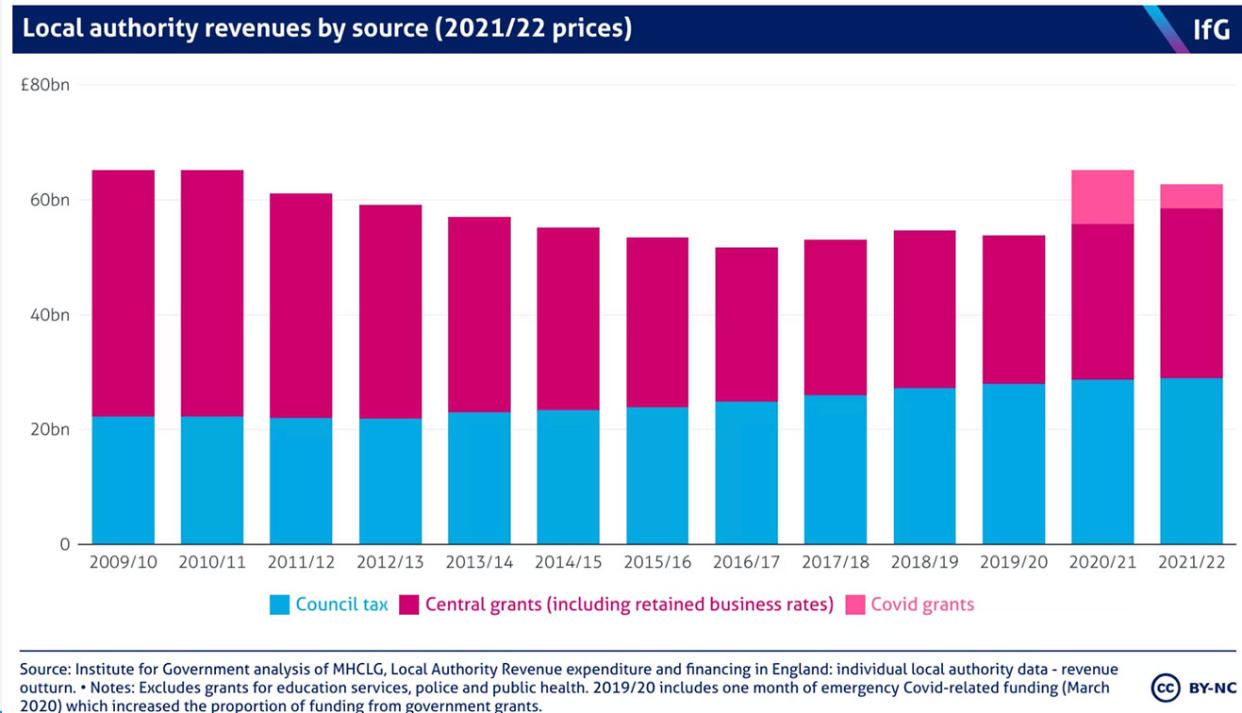What was the austerity of 2010 and how did it impact the UK?

Sir Keir Starmer's warning that the upcoming budget on 30 October is “going to be painful” has prompted fears of spending cuts and increased taxes that some have warned could signal a return to austerity.
One of the key factors driving this concern is Labour's willingness to make the £300 winter fuel payment means-tested, which means around 10 million pensioners in England and Wales will stop receiving the extra allowance in order to save the government around £1.4 billion in a year.
And while Starmer has committed to not increasing income tax, national insurance or VAT, he has left the door open for other tax rises, such as capital gains and inheritance tax.
Labour says it needs to balance the books if it wants to fulfill its promise to fund 6,500 more teachers; 13,000 extra police and community officers; and 40,000 more NHS appointments per week. It has also struck pay rise deals with public sector unions to bring an end to strikes.
Labour previously pledged that there would be "no return to austerity" if it won the 2024 general election but Starmer's warnings have led to concerns of an "austerity agenda" - for example, from the Scottish National Party and the Unite union.
What is austerity?
Austerity is a term used to describe economic policies put in place by a government in an effort to control public sector debt.
The approach is to reduce overall government spending and shrink the budget deficit, with policies including tax increases and government program cuts.
In 2010, austerity was the UK government’s main fiscal policy as the Conservative-Liberal Democrat coalition announced the biggest cuts to state spending since the Second World War including significant cuts to social security and the planned loss of 900,000 public sector jobs between 2011 and 2018.
Yahoo News revisits some of the major impacts then prime minister David Cameron and his chancellor George Osborne's austerity programme had on Britain over the course of a decade.
Mortality rates/life expectancy
Data suggests that austerity spending cuts cost the average person in the UK nearly half a year in life expectancy between 2010 and 2019, with life expectancy dropping by an average of five months for women and three months for men.
This equates to about 190,000 excess deaths, or a three per cent increase in mortality rates over the period.
Factors responsible for those deaths included ‘deaths of despair’ from drug poisoning, along with a decline in ambulance response quality and changes in healthcare spending, resulting in over 35,000 people being at higher mortality risk.
A Journal of Epidemiology and Community Health article published in October 2022, based on research led by the Glasgow Centre for Population Health and the University of Glasgow, also argued that austerity negatively impacted health by causing increased unemployment, poverty and homelessness, as well as being associated with worsening mental health, resulting in an increased risk of suicide.
NHS services & waiting lists
NHS waiting lists soared in the wake of the COVID pandemic, but research also attributes issues with delays in healthcare to the period of austerity.
Research from the Nuffield Trust and Health Foundation found austerity in the early 2010s led to the health service no longer being able to meet key waiting time targets.
Analysis by the Quality Watch programme published in 2023, which monitors more than 150 indicators of care quality over time, found that in England fewer people with long-term heath conditions such as cancer, diabetes and depression, were getting enough help to manage their condition. There was also a drop in breast cancer screening rates for women aged 53-74 and a growing difficult in patients being able to see a named GP.
According to the BMA, in June 2024 the NHS waiting list stood at 7,622,949 consisting of around 6,386,731 individual patients waiting for treatment in England.
Police and prisons
Austerity also had an impact on police and prisons, with cuts to public sector spending affecting the number of police officers.
According to the Institute for Government, by 2018 police officer numbers were down 14.8% compared to 2010 levels - 21,000 fewer officers.
Research looking at the closure of 70% of police stations also suggested that those closures persistently increased violent crimes in census blocks near the defunct stations, along with reduced reporting of non-violent offences, and lower local house prices in the most deprived areas.
Similar issues affected the prison service, with Institute for Government figures finding the prison service lost 26.6% of its officers between 2009/10 and 2014/15 - a reduction of 6,600.
The prison service has also seen increased prison overcrowding - with sources reportedly saying over the August Bank Holiday weekend that there are fewer than 100 available spaces left across the male prison estate in England and Wales.
According to the BBC, latest figures released by the Ministry of Justice (MoJ) on Friday, 23 August put the current population of the male prison estate in England and Wales at 84,596, with the female figure at 3,638 - the highest total end of week number since weekly data was first published in 2011. The current operational capacity of the prison system is 89,383 people, covering both the male and female estate.
Local councils & services

Austerity cuts had an impact on local services - from bin collections to libraries and social care.
According to the Institute for Government, central government grants were cut by 40% in real terms between 2009/10 and 2019/20.
According to the County Councils Network, the period of austerity saw councils close a third of libraries as part of councils reducing expenditure on libraries, culture and heritage and tourism by £472m by 2023/24 compared to 2010/11.
Part of cuts to local government funding also saw bin collections cut as councils prioritised services like social care. Many switched from weekly collections to fortnightly or even thrice-weekly.
Social care suffered as a result of austerity measures, resulting in an increase in the number of people acting as unpaid carers.
According to Carers UK, research suggests that there was a 16.6% decline per capita in the number of people aged over 65 accessing long-term care in 2020/21 compared to 2014/15. That led to a deterioration in the condition of those who can’t access care, and an increased burden on unpaid carers.
YouGov polling data in 2024 showed that 62% of current and former unpaid carers - the equivalent of 10 million adult unpaid carers - said they had no choice, due to a lack of available care options.
Cuts to road maintenance budgets since 2010 also had an impact on the roads we drive on - including how many potholes we bump over.
In 2021 the Local Government Association (LGA), which represents councils in England and Wales, estimated that funding for 9.5 million pothole repairs had been ‘lost from council budgets’.
Child Poverty
A report from the BMA in 2016 said austerity measures - together with the long-term effects of the 2008 recession such as income poverty - contributed to increases in the number of children living in poverty.
It said vulnerable groups of children continued to be some of the worst affected by cuts to services - including children with disabilities, refugee and asylum seeker children, and children suffering from poor mental health.
In May 2024, the former prime minister Gordon Brown urged the then-chancellor Jeremy Hunt to use his September mini-budget to introduce a £3 billion programme to rescue what he described as the UK's 4.2 million 'children of austerity' from fast rising poverty.
Brown wrote in a paper called' Partnership to end poverty': "Britain is beset by a hidden emergency, whose forgotten and voiceless victims include hundreds of thousands of children behind closed doors, in homes without heating, bedrooms without beds, kitchens without food – and even toilets without toilet rolls, bathroom sinks with no soap, and showers without shampoo.
"Long years of austerity have been followed first by a pandemic with a locked-down economy, and then by extraordinarily rapid rises in energy and then food bills."
Read more


